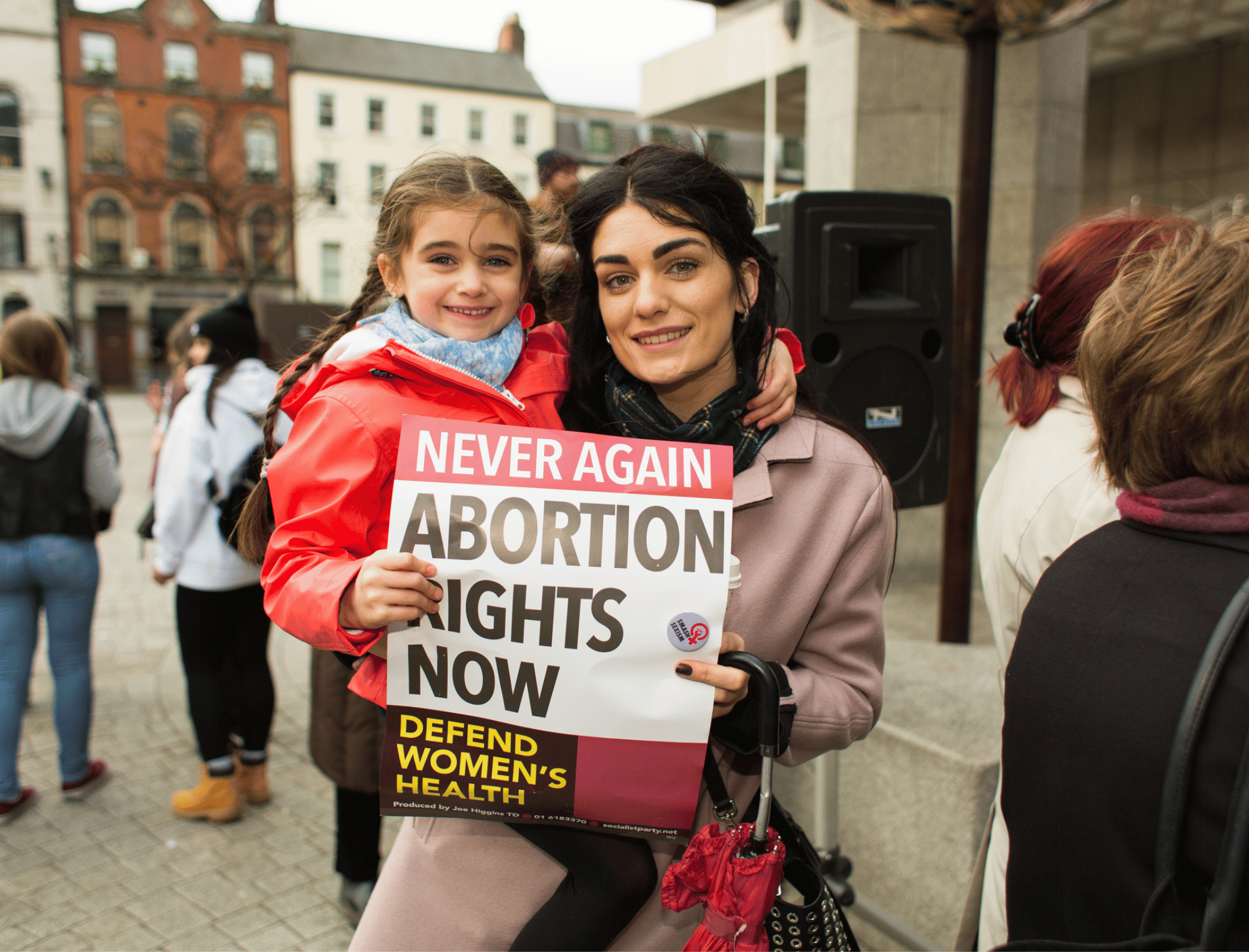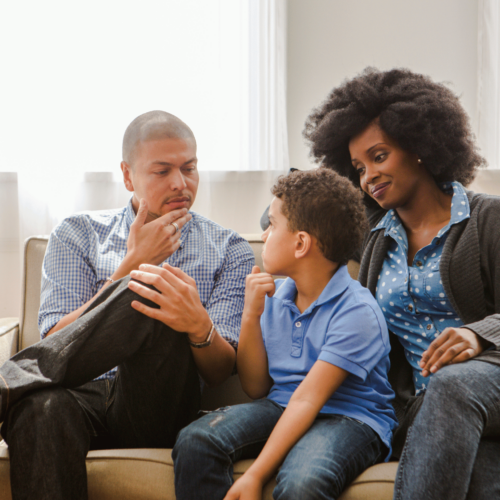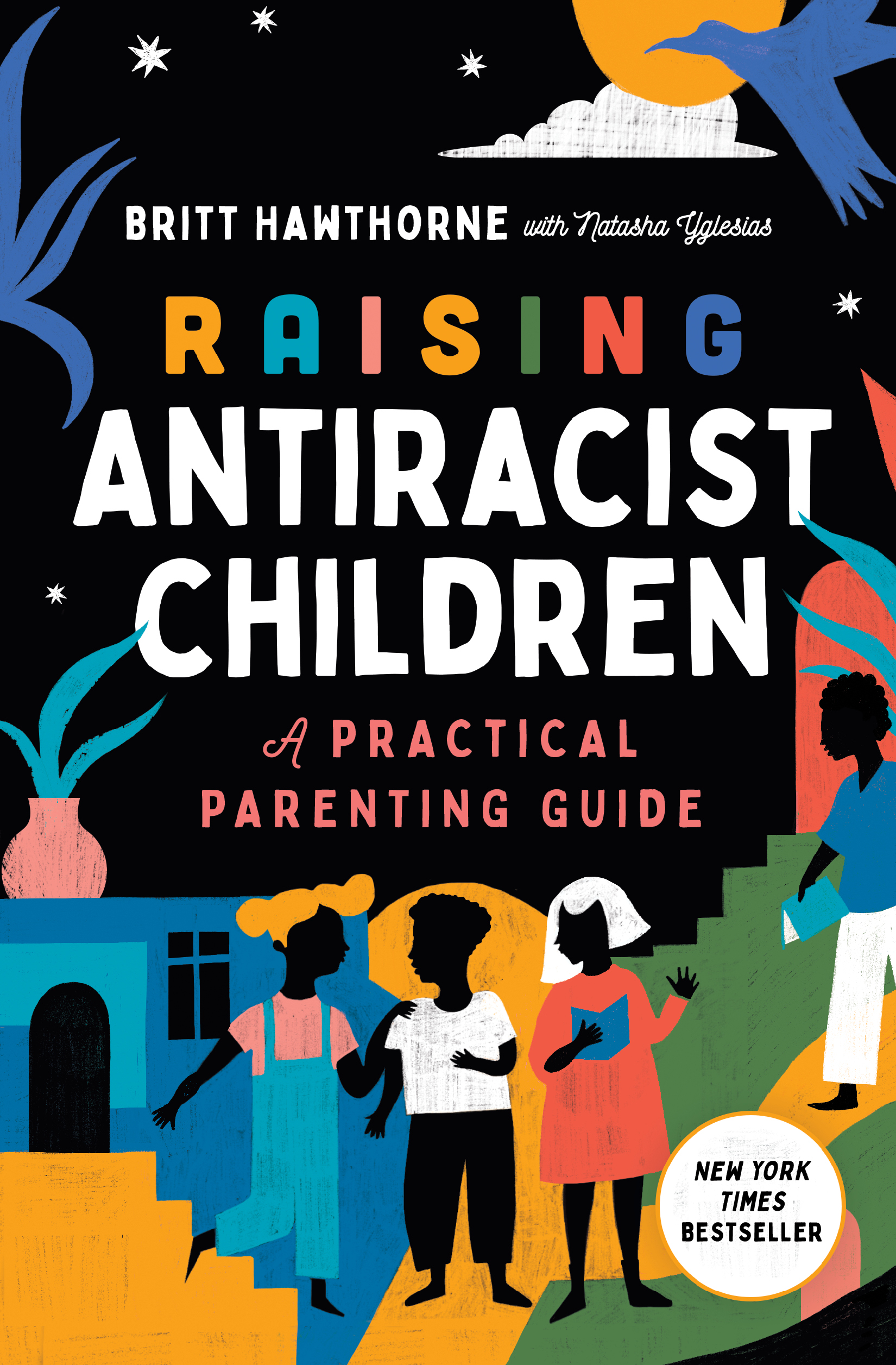Discussing abortion as a family can be challenging and scary—many parents shut down the conversation or avoid it completely. While this is likely due to fear, it contributes to a culture of shame about reproductive choices, sex, and our bodies. Here’s how to talk about abortion as a family. (Gentle reminder, reader: Stay curious, be brave, and let go of judgment!)
Abortion Is Often Dismissed in Family Discussions—It Shouldn’t Be
As a child, I vividly remember turning into the movie theatre and noticing a large crowd gathered on the corner. People of all ages were waving posters that read “abortion = murder” and displaying pictures of mutilated babies on poster boards. My excitement for the movie clashed with utter confusion. Why would parents murder their babies? And what did that have to do with the movies?
My parents quickly dismissed the people and their stance but never talked with me about abortion. I heard them say, “We are pro-choice,” yet they didn’t give me any tools to put that belief into action. But then, my parents had the comfort of Roe v. Wade, the Supreme Court ruling that protected a pregnant person’s right to choose to have an abortion. We’re raising children in a different era.
On June 24, 2022, the Supreme Court overturned Roe v. Wade, severely limiting access to safe abortions in the United States. It’s not enough to say, “I’m pro-choice.”
As a Texan raising two boys, it’s my responsibility to loudly and proudly advocate for reproductive justice and educate my children. Keep reading to learn how to talk about abortion as a family.
My Family’s Beliefs On Abortion
Before we delve into how to talk about abortion as a family, I want to be direct with you. Below are my family’s shared values on abortion.
In this house, we believe in:
- Bodily autonomy
- Access to contraception
- Access to adoption resources
- Access to family planning resources
- People with a uterus have the right to safe abortions
- People have the right to decide what’s best for their body
- No one should be forced to have an abortion or continue a pregnancy
How To Talk About Abortion as a Family
1. Take It Slow
If you want to discuss abortion as a family, my first piece of advice is to take it slow. Give yourself time to process your emotions, values, and beliefs. Our children will always be our babies, so find peace knowing you don’t have to rush the conversation.
2. Keep The Conversation Simple
Please resist the urge to make the conversation more complicated than it needs to be. Cloudiness and ambiguity are clear signs you’re unsure about your stance, so take some time unpacking your beliefs.
3. Foster a Brave Space
When you’re ready, start by fostering a brave space. A brave space makes learning enjoyable and loving and brings forward new understandings. In our brave space, everyone can ask questions and share their truth.
4. Destigmatize Abortion
Abortions are highly stigmatized, causing an awful lot of myths and lies. And, statistically, one in four women will have an abortion in their lifetime. That means that many women will undergo a life experience that is highly stigmatized.
When discussing abortion with your family, it’s important to actively fight against this stigma. One way to do this is to stop whispering the word abortion. As I’ve learned from Becca Rea-Tucker, most notoriously known as @thesweetfeminist and the author of Baking by Feel, abortion is not a bad word.
Abortion is not a bad word.
Abortion is not a bad word.
Abortion is not a bad word.
As long as we’re whispering abortion in the shadows, we’re stigmatizing it. Stigma creates roadblocks for people trying to get or even learn about abortion.
I want my children to know if someone tries to make them feel bad or guilty when learning about abortions, that person is participating in abortion stigma. In our home, we’ve clarified that abortion is a safe procedure. It’s completely confidential. People who have abortions only have to discuss abortion with their healthcare provider and a trusted person. But most importantly, getting an abortion doesn’t taint a person or make them less worthy of love, protection, or care. People who have abortions are still loved, lovable, and human. Breaking the cycle of fear and shame around abortion will also disrupt the circulation of disinformation.
5. Debunk Common Myths About Abortion
It’s no surprise adolescents have learned a myth or two about abortion. In the United States, sex education is only mandatory in 24 states. Only 10 states require that sex education is medically accurate, and only nine require teaching consent.
Myth: Abortions cause cancer
Myth: Abortions cause infertility
Myth: Abortions cause mental illness
Many adolescents, without access to medically accurate sex education information, turn to their peers for shame-free, honest advice. But this can be a disastrous plan. Caregivers need to debunk the myths; that’s why we talk with the young people in our lives. Always stick to the facts by using scientifically accurate resources.
For guidance, check out the video Abortion with Pills: What is it? from AMAZE for early adolescent children and Action Canada’s Common Myths About Abortion for late adolescents and young adults.
Scripts to Guide Conversations About Abortions: Keep It Simple and Factual
With any conversation, it’s best to have a few pocket responses ready. Inspired by Planned Parenthood’s clear and concise scripts, I’ve written a few pocket responses based on my values and beliefs for our boys. I firmly believe in keeping things short and to the point because figurative phrases like idioms or colorful language can add more confusion than clarity.
How To Start a Conversation
One way to start the conversation is by asking, “What do you know about abortions?” This will help you to know how much information to share and what myths need debunking.
What’s An Abortion?
Have you heard a character in a book or movie yell, “Abort, abort”? Abort means to stop or end something. When a person gets an abortion, they’re ending their pregnancy.
How Does an Abortion Work?
Some people take a pill prescribed to them by a doctor that’s safe and very effective. Some people have a quick procedure in a health center. In either of those methods, the person is cared for by a doctor. And some people know and use indigenous or ancient practices because they were passed down over generations.
Who Can Get an Abortion?
A pregnant person. We believe any pregnant person who wishes to stop their pregnancy has the right to do so. And some people don’t decide to have an abortion. Sometimes the pregnancy ends on its own or must be stopped to save the pregnant person’s life.
Who Needs to Know About Abortions?
Abortions are confidential and very personal. Only the person getting the abortion, the doctor, and the nurse need to know. If someone tells you they’ve trusted you not to retell their story.
Who Do I Have to Tell?
It’s important to use your “trusted adults” if you have questions or need support. I’m always here for you, and so are they.
Why Are You Pro-Choice?
Because I believe people have the right to decide what’s best for their bodies, including ending a pregnancy. Beyond this conversation, it’s important to remember that one way to think about freedom is the presence of choice. Unfortunately, right now, having body autonomy (choice) is only afforded to certain groups of people.
Create Your Own Scripts
Now it’s your turn. I encourage you to write your pocket responses, answering possible questions you might receive from your children. There isn’t one way or even the right way to make your script. What’s important is allowing for curiosity, shared dialogue, and critical thinking to take up space in your conversation.
Moving Beyond Our Family
It is so important to discuss abortion openly and honestly with our families. And having conversations at home isn’t enough. The current state of abortion rights in the U.S. is dire. Community care is more important than ever. One way to help support the cause is to donate to abortion funds supporting people seeking abortion care. Another is to tell your lawmakers you want reproductive justice and for abortion to be protected.
Lastly, stay engaged in the conversation. You can do this by continuing to discuss abortion with your family and friends, staying up-to-date on abortion news, and attending pro-choice protests or discussions in your community. As always, I’m rooting for you.





